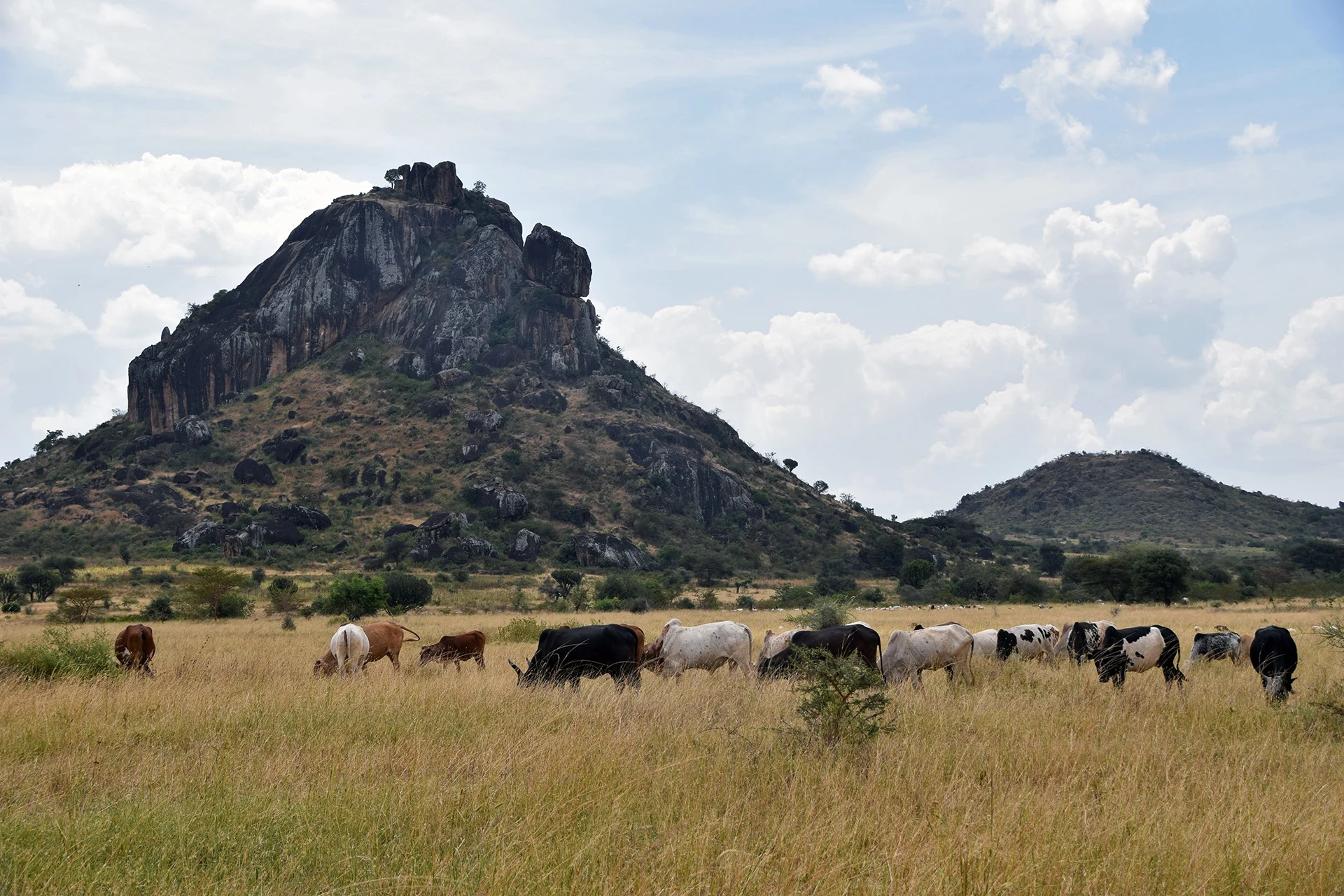
Fighting cattle raiders is dividing the Karamoja people in Uganda
Because of the army’s merciless, informant-driven disarming campaign, a four-year spate of violent cattle raids in northeastern Uganda’s Karamoja region is finally abating.
However, even when stability gradually returns, future attempts at peace and reconciliation may be hampered by divisions stemming from class conflicts, intergenerational strife, and hostilities between raiders and government collaborators inside communities.
I studied oral history for more than a year in Kotido District, northern Karamoja, where the Jie, an estimated 240,000-person ethnic group, reside. This was between 2022 and 2023.
According to my research, peace activists need to look beyond traditional conflict resolution techniques and address the intricate web of alliances, betrayals, and anxieties that the violence of the 2020s has created in order to effectively address these deep intracommunal antagonisms.
In Karamoja, livestock raiding has a lengthy history. Historically propelled by rivalry between different ethnic groups over territory and livestock, raiding played a significant role in an agro-pastoral economy that depended on ingenuity and flexibility to endure the region’s severe and arid weather.
Drastic cordon-and-search operations of entire villages were part of a previous military disarmament campaign in the 2000s. This collective punishment, which stoked animosity between pastoralist communities and the Ugandan state dating back to British colonial rule, made people sympathetic to the rustlers.
The army has been waging an intelligence-driven campaign in the last few years, focusing on specific individuals whose movements and actions are tracked by informants. The army has imprisoned, tortured, and executed extrajudicially alleged raiders as a result of the information they have provided. Because of this, rustlers have slain supposed informers when they come across them.
In 2022, a menacing song that became popular among Jie youth mirrored the fractures that the army’s tactics caused within communities. They sang, “Move aside, government, so we can search for the informers. We are searching for the informers.”
In Karamoja, livestock raiding between competing ethnic groups has historically served the interests of entire communities. The concept of kiwa ekile, or “hide the man,” which refers to concealing the identity of the raiders from security guards and other state agents, was observed by the people of Kotido as a result of livestock raids being shared and mutual mistrust between communities and the government.
But over the past few decades, Karamoja’s political economy has seen significant transformation, and with it, the nature of conflict in the area has evolved.
Since the end of the army’s most recent disarmament campaign in 2011, there has been a significant acceleration of the cash economy’s penetration and the commercialization of raids.
In the short run, the military’s action was successful. However, the old agro-pastoral economy has become more and more unsustainable due to factors including climate change, drastically diminishing animal herds, and the army-guarded “protected kraals” system it imposed.
Economic disparity in the relatively peaceful 2010s was determined by an individual’s relative capacity to engage in the market economy. Older men with connections who had access to capital, land, and animals were able to solidify their position of success.
But, younger males occasionally turned to small-time criminality as a means of making ends meet since they lacked money or livestock.
When raiding resurfaced in 2019 and 2020, partly due to the effects of COVID-19, it was dominated by criminal organizations focused on the market, who sold livestock they had stolen and kept the money for themselves instead of redistributing the animals to their communities.
Similar to previous decades, raiding had a negative impact on livelihood activities and agricultural production, which led to a food crisis and allegations of deaths from starvation.
Armed raiders have targeted members of their own Jie community in Kotido and throughout Karamoja because to the more personal nature of the battle. They have even collaborated with raiders from competing ethnic groups like the Dodoth, Bokora, or Matheniko.
Jie’s allies communicated with cattle raiders by cell phones, giving them Jie’s livestock positions and when to attack. After completing their mission and selling the animals they had taken, the raiders used mobile money transfers to give their accomplice in Kotido a portion of the proceeds.
Some Jie claim that soldiers assigned to watch over Jie livestock in the “protected kraals” set up at army barracks also took part in this.
Modern-day raiders would rather have “a cow in the pocket” than a cow in the kraal, or money from the sale of animals they have stolen. It permits loan payback, pays medical expenses, and gives allies a consistent supply of beer and roasted meat.
Consequently, communities have turned against their sons who are raiders, mockingly referring to them as nginyamirei (meaning “devourers”) and ngimokorai (meaning “gangsters”). Their actions are characterized by the metaphor of sons plundering their fathers’ animals, anathema that emphasizes the serious danger they pose to ingrained social mores.
In the evolving landscape of livestock raiding, informers represent a new dynamic. Their broad usage, fostered by military intelligence, has generated a climate of distrust that is felt everywhere. They are frequently former raiders who have been convinced to work with the army by cash incentives or the fear of being tortured and imprisoned.
There are significant risks. According to a former raider, “If villagers know you as a broke man without cows and see you holding money, they will ask, ‘Where did you get money from?'”
“If they believe he is a collaborator, they kill him after that.”
Some who were not part of the raids claim that some informants gave the army false information in order to extort people or, as one official from an NGO put it, “to purge their rivals in the community.”
Both raiders and informers have leveled accusations against members of local peace committees, which are heavily involved in peace initiatives and government liaison. Peace committees are formalized organizations that were first established in 2001 or so, usually with the participation of elders.
They may also be accused of corruption since they help with the seizure and transfer of cattle that has been stolen.
Members of the peace committee, some of whom were once accomplished raiders, are viewed by young raiders as possible informants and hypocrites. According to a raider who gave up his weapon in 2023, several local peace committee members have strong ties to cattle sellers in neighboring regions like Teso, which puts them squarely in the financial aspects of raiding. He remarked, “They will never refuse to take what I bring back from [raids]; they are in charge of peace.”
Members of the peace committee assert that some former raiders who are now informants have made false accusations against them in an effort to settle old scores. “In order to punish a peace committee member, [informers] will tell the government that his son has a gun,” said one committee member.
With the killing of high-profile Jie raiders and the general amnesty granted to raiders who turned in their weapons, Kotido District and Karamoja have seen a significant decrease in gunfire throughout the past year.
Among the significant contributions made by peacebuilders is the placement of young men who have recently given up their weapons at the forefront of efforts to promote peace. However, peacebuilding programs spearheaded by non-governmental organizations have followed established protocols for interethnic peace talks. This strategy disregards the divisions that intra-communal violence and the employment of informers have produced and instead views cattle raiding in Karamoja as the result of unresolvable inter-ethnic conflicts rather than altering economic incentives.
It is imperative that everyone involved in peacebuilding recognize the profound shifts in Karamoja’s political economy during the last 20 years, especially at this crucial juncture.
Although there will always be rivalry between groups, it may be harder to resolve divisions inside communities because the boundaries between a raider, peacemaker, cattle dealer, and informant are frequently so hazy as to be undetectable.
All Categories
Tags
+13162306000
zoneyetu@yahoo.com


